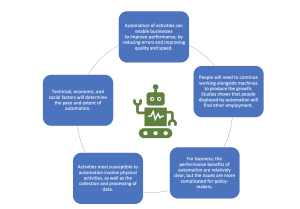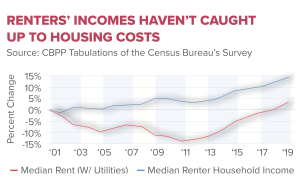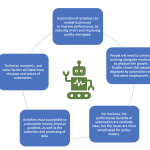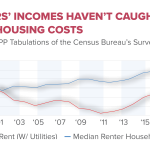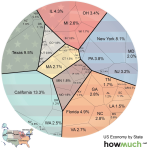Research funding impact is a pivotal concept in understanding the trajectory of innovation and economic growth in the United States. As federal funding becomes increasingly scrutinized and subjected to freezes, the effects ripple through the research community, affecting not only large institutions like Harvard but also the very core of the startup ecosystem. According to recent studies, every dollar invested in biomedical research generates an astonishing $2.56 in economic activity, highlighting the crucial role of research funding in fostering entrepreneurship and innovation. The potential consequences of a federal funding freeze could be akin to the economic disruptions experienced during the 2008-2009 Great Recession, threatening the foundation of U.S. economic growth. By connecting academia and industry, research funding is the lifeline that nurtures the transformative ideas leading to both groundbreaking advancements and entrepreneurial ventures.
The influences of financing research extend far beyond academic circles, making it fundamentally important for the broader innovation landscape. When there is a significant reduction in government grants, particularly in technology and health-related fields, it stifles creativity and the potential for new enterprise development. The ongoing analysis illustrates that dependable financial resources are essential for nurturing the next wave of visionary entrepreneurs who revolutionize industries. Additionally, the interplay between research institutions and emerging startups is crucial in translating knowledge and discoveries into commercial opportunities. Understanding the ramifications of funding constraints leads to a deeper recognition of its role in shaping the future of entrepreneurship and sustainable economic progress.
The Critical Role of Research Funding in U.S. Innovation
Research funding has a profound impact on innovation within the United States, serving as the catalyst for advancements that lead to significant economic growth. When funds are dedicated to research in fields like science and technology, the return on investment is substantial. According to data from the nonprofit United for Medical Research, every dollar invested in federal biomedical research generates approximately $2.56 in economic activity. This multiplier effect highlights the essential nature of research funding as it not only supports academic endeavors but also fortifies the U.S. economy as a whole. Without adequate funding, the potential for innovation diminishes, resulting in a slower pace of technological advancement.
The recent freeze on federal research funding, particularly affecting key institutions such as Harvard, underscores the vulnerabilities inherent in maintaining a vibrant research ecosystem. Disruptions to funding sources can lead to hiring freezes and the cancellation of important initiatives, stifling the creativity and ingenuity that fuel startups and new technologies. According to Harvard Business School analyst Jeffrey J. Bussgang, the ongoing funding freeze presents a concerning threat to the pipeline of future companies, many of which require a well-supported research environment to flourish.
Impact of Federal Funding Freeze on Startups
The federal funding freeze has far-reaching consequences for the startup ecosystem, particularly in the fields of technology and biomedical research. Startups often draw upon innovations developed within research universities; without the necessary funding, the quality and quantity of these innovations may dwindle. Entrepreneurial ventures rely heavily on groundbreaking research to create competitive products and services, and the disruption in funding jeopardizes this critical resource. As noted by Bussgang, the timeline for seeing the impact of these funding cuts is likely to be one to three years, indicating a medium- to long-term challenge for new entrepreneurship initiatives.
Moreover, the shortage of federal funding can hinder universities’ ability to act as incubators for new companies, as both faculty and students depend on these resources to push their ideas from conception to the marketplace. The loss of grant payments and the resulting hiring restrictions can lead to a significant decrease in new startup formations. As institutions struggle to access necessary resources, the gap in entrepreneurial activity may widen, ultimately stunting innovation that contributes to U.S. economic growth.
Encouraging Entrepreneurship Through Enhanced Research Funding
Enhancing research funding is crucial for fostering a robust entrepreneurial environment. Universities serve not only as educational institutions but also as breeding grounds for startups that thrive on research-backed innovations. By investing in research funding, particularly at research universities, we create a direct pathway for students and faculty to develop their ideas into viable business models. An enriched funding pool supports collaborations across departments, such as engineering and computer science, which are vital for the cross-pollination of ideas that drives innovation and entrepreneurship.
Furthermore, the investment in research fosters a competitive atmosphere that attracts some of the brightest minds globally. The vibrant community formed around research universities aids in transforming ideas into technologies that can be commercialized, forming the backbone of new businesses. Entrepreneurship, therefore, flourishes in an ecosystem supported by adequate funding and a strong educational framework, ensuring that the U.S. maintains its position as a leader in technology and innovation.
Long-term Economic Outcomes of Research Funding Cuts
The long-term economic outcomes of cutting research funding can be severe and far-reaching. Economists warn that a reduction in research funding could result in GDP shrinkage comparable to times of economic crisis, such as the Great Recession. Historical data provides evidence that countries investing in research and development tend to experience higher rates of economic growth and technological advancement. By cutting back on these investments, not only is immediate innovation at risk, but we also jeopardize the future economic landscape of the country.
Moreover, the ability to maintain a competitive edge on a global scale is also at stake. As other countries ramp up their investments in research and innovation, the U.S. must ensure its funding mechanisms support scientific advancement. The continued freeze on federal funding can lead to a situation where the U.S. falls behind in technological developments, ultimately compromising its leadership in the global economy and adversely affecting economic growth.
The Startups Pipeline: How Research Institutions Facilitate Growth
Startups in the U.S. heavily rely on the infrastructure provided by research institutions to bridge the gap between theoretical research and commercial application. Universities often act as the breeding grounds for innovative ideas, where faculty and students collaborate to develop cutting-edge technologies. Programs designed to foster entrepreneurship, coupled with significant research funding, accelerate the transition from lab to startup. This synergy is essential for cultivating a rich pipeline of new ventures, which play a crucial role in driving economic vitality.
Understanding the startup pipeline’s dependence on research institutions emphasizes the need for robust funding mechanisms. When research funding is secure, it enables institutions to attract top talent, invest in innovative infrastructure, and facilitate valuable connections within the venture capital community. In contrast, disruptions to this funding not only stifle the growth of new startups but also impede the overall innovative potential of the country. Therefore, sustaining and enhancing funding for research is vital to nurture the ecosystem that supports entrepreneurship.
The Intersection of Federal Funding and Economic Growth
Federal funding for scientific research is intricately linked to U.S. economic growth, as it fuels the innovation ecosystem that drives new technologies and industries. The more resources allocated to research, the greater the potential for breakthroughs that can lead to entirely new markets and products. Studies indicate that federal investments directly correlate with advancements in technology that subsequently produce high-paying jobs and elevate economic activity across various sectors.
However, when federal funding is threatened or cut, as seen with the current funding freeze, the ramifications extend beyond the immediate loss of revenue for research institutions. The entire economic framework can suffer as the flow of new ideas and enterprises diminishes. Economic growth is stunted as fewer innovations translate to commercial success, illustrating the critical importance of consistent and substantial investment in research funding to ensure the long-term vitality of the U.S. economy.
Entrepreneurship Education: A Key Factor in University Startups
Entrepreneurship education is a vital component for fostering startup culture within research universities. Institutions like Harvard have developed comprehensive entrepreneurship curricula designed to equip students with the skills and knowledge needed to launch successful ventures. This educational approach not only instills entrepreneurial thinking but also encourages practical applications of research, often resulting in the creation of innovative startups.
By integrating entrepreneurship into the core academic framework, universities create an environment where students can leverage research to develop business models. This synergy enhances the likelihood of success for new startups, as students are better prepared to navigate the complexities of launching a business. Ultimately, fostering an entrepreneurial mindset contributes to a more dynamic economy, reinforcing the importance of combining education, research, and funding to stimulate economic growth.
Understanding the Ripple Effects of Research Funding Cuts
The ripple effects of cuts to research funding can take years to fully materialize, impacting everything from university employment to the broader startup ecosystem. As grants are canceled and positions are put on hold, the immediate ramifications include disruptions to ongoing projects and a slowdown in the number of new initiatives. Jeffrey Bussgang emphasizes that while the effects may not be immediately visible, the long-term consequences can significantly hinder the development of innovative businesses.
Moreover, the indirect consequences of funding cuts may lead to a decrease in collaboration between academia and industry, as fewer resources may be available for research partnerships or technology transfers. This lack of collaboration could stifle the innovation that often arises from shared ideas and expertise, leading to a decline in the establishment of new startups that rely on cutting-edge research. The longer the federal funding freeze persists, the more pronounced the challenges will become for the entrepreneurship landscape in the United States.
Navigating the Future: Solutions for Sustainable Research Funding
Looking ahead, developing sustainable solutions for research funding is crucial to support the ongoing innovation that drives the U.S. economy. Policymakers must recognize the integral role of research funding in entrepreneurship and invest strategically to foster an environment conducive to startup growth. By clearly understanding the connection between research funding and economic development, stakeholders can advocate for policies that protect and enhance funding mechanisms.
Furthermore, collaboration among universities, governmental agencies, and private investors can create innovative funding models that address current challenges. Approaches such as public-private partnerships can harness additional resources to ensure that research institutions continue to thrive. Strengthening research funding safeguards innovation, entrepreneurship, and economic growth in the United States, setting the stage for a prosperous future.
Frequently Asked Questions
What is the impact of research funding on the U.S. startup ecosystem?
Research funding significantly impacts the U.S. startup ecosystem by providing the necessary resources for universities to produce innovative ideas and technologies. These universities serve as incubation centers, where both faculty and students can develop and commercialize research findings into successful startups. A strong research funding environment fosters entrepreneurship, attracting top talent and investment that drive economic growth.
How does a federal funding freeze affect U.S. economic growth?
A federal funding freeze can stifle U.S. economic growth by halting crucial research and development initiatives. As funding for scientific studies is cut, fewer innovative startups can be created, which may lead to a decrease in new job opportunities and economic activity. Research indicates that every dollar invested in federal biomedical research generates $2.56 in economic activity, highlighting the risks associated with funding cuts.
What role do research universities play in fostering entrepreneurship and innovation?
Research universities play a vital role in fostering entrepreneurship and innovation by providing rich resources and a conducive environment for startup creation. They bridge the gap between academia and the business world through their commercialization efforts, faculty expertise, and comprehensive entrepreneurship programs. By integrating research with practical business applications, these institutions contribute significantly to the startup ecosystem.
Why is federal funding critical for tech and biomedical startups?
Federal funding is critical for tech and biomedical startups because it supplies essential resources that enable labs to conduct groundbreaking research. This research not only leads to novel ideas but also attracts aspiring entrepreneurs and top talent. A well-funded research environment is more likely to produce viable commercial products that can stimulate economic growth and drive innovation.
What are the potential long-term effects of cuts to research funding?
The potential long-term effects of cuts to research funding include a noticeable decline in the number of startups entering the market, reduced innovation, and a decrease in overall economic activity. These cuts can affect the pipeline of new ideas, resulting in fewer products and services that might contribute to U.S. economic growth. The adverse impacts could manifest over a one-to-three-year period, as the entrepreneurial ecosystem responds to reduced resources and opportunities.
| Key Point | Details |
|---|---|
| Impact of Funding Freeze | The U.S. government froze over $2 billion in research grants to Harvard, affecting various scientific fields. |
| Economic Consequences | A research indicates GDP could shrink by 3.8% due to funding cuts, likening it to the 2008-2009 recession. |
| Startup Ecosystem Dependency | Research universities are crucial for startups, providing a path from lab innovations to market. |
| Role of Faculty and Students | Faculty research leads to commercialization while students drive startups through entrepreneurship programs. |
| Long-term Effects of Cuts | Effects of funding cuts on startups will be felt medium- to long-term, with fewer new companies emerging. |
| Potential for Recovery | Though a reversal of the funding freeze is possible, the effects will persist for one to three years. |
Summary
Research funding impact is a crucial issue shaping the landscape of U.S. innovation and economic growth. The ongoing freeze on federal research funding at institutions like Harvard has far-reaching implications, not only on university-led research but also on the vitality of the startup ecosystem that emerges from academic environments. As research institutions face tight budgets, the potential for new company creation diminishes, highlighting the importance of sustained investment in scientific research to foster entrepreneurial breakthroughs and drive economic progress.


